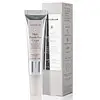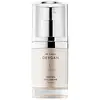What's inside
What's inside
 Key Ingredients
Key Ingredients

 Benefits
Benefits

 Concerns
Concerns

 Ingredients Side-by-side
Ingredients Side-by-side

Water
Skin ConditioningGlycerin
HumectantSimmondsia Chinensis Seed Oil
EmollientStearic Acid
CleansingSqualane
EmollientGlyceryl Stearate
EmollientCetyl Alcohol
EmollientStearyl Alcohol
EmollientPalmitic Acid
EmollientAcetyl Hexapeptide-8
HumectantPalmitoyl Tetrapeptide-7
Skin ConditioningPalmitoyl Tripeptide-1
Skin ConditioningPalmitoyl Tripeptide-5
Skin ConditioningDunaliella Salina Extract
Skin ConditioningPanthenol
Skin ConditioningSodium Hyaluronate
HumectantHydroxyacetophenone
AntioxidantSorbitan Oleate
EmulsifyingAluminum Starch Octenylsuccinate
AbsorbentAcrylamide/Sodium Acryloyldimethyltaurate Copolymer
Emulsion StabilisingPhenoxyethanol
PreservativeButylene Glycol
Humectant1,2-Hexanediol
Skin ConditioningBoron Nitride
AbsorbentCaprylyl Glycol
EmollientTocopheryl Acetate
AntioxidantIsohexadecane
EmollientChlorphenesin
AntimicrobialAcrylates/C10-30 Alkyl Acrylate Crosspolymer
Emulsion StabilisingSodium Hydroxide
BufferingPolysorbate 80
EmulsifyingCarbomer
Emulsion StabilisingSodium Lactate
BufferingPolysorbate 20
EmulsifyingCitric Acid
BufferingEthylhexylglycerin
Skin ConditioningPantolactone
HumectantSodium Benzoate
MaskingPotassium Sorbate
PreservativeWater, Glycerin, Simmondsia Chinensis Seed Oil, Stearic Acid, Squalane, Glyceryl Stearate, Cetyl Alcohol, Stearyl Alcohol, Palmitic Acid, Acetyl Hexapeptide-8, Palmitoyl Tetrapeptide-7, Palmitoyl Tripeptide-1, Palmitoyl Tripeptide-5, Dunaliella Salina Extract, Panthenol, Sodium Hyaluronate, Hydroxyacetophenone, Sorbitan Oleate, Aluminum Starch Octenylsuccinate, Acrylamide/Sodium Acryloyldimethyltaurate Copolymer, Phenoxyethanol, Butylene Glycol, 1,2-Hexanediol, Boron Nitride, Caprylyl Glycol, Tocopheryl Acetate, Isohexadecane, Chlorphenesin, Acrylates/C10-30 Alkyl Acrylate Crosspolymer, Sodium Hydroxide, Polysorbate 80, Carbomer, Sodium Lactate, Polysorbate 20, Citric Acid, Ethylhexylglycerin, Pantolactone, Sodium Benzoate, Potassium Sorbate
Water
Skin ConditioningHelianthus Annuus Seed Oil
EmollientGlycerin
HumectantDimethicone
EmollientIsopropyl Palmitate
EmollientPalmitoyl Tripeptide-1
Skin ConditioningPalmitoyl Tetrapeptide-7
Skin ConditioningSteareth-20
CleansingChrysin
Skin ConditioningN-Hydroxysuccinimide
Skin ConditioningButylene Glycol
HumectantCarbomer
Emulsion StabilisingPolysorbate 20
EmulsifyingGlycol Distearate
EmollientGlyceryl Stearate
EmollientPEG-100 Stearate
Stearic Acid
CleansingStearyl Alcohol
EmollientPhytonadione Epoxide
AstringentVitis Vinifera Seed Oil
EmollientPersea Gratissima Oil
Skin ConditioningTocopheryl Acetate
AntioxidantAllantoin
Skin ConditioningTitanium Dioxide
Cosmetic ColorantTetrasodium EDTA
Triethanolamine
BufferingPhenoxyethanol
PreservativeEthylhexylglycerin
Skin ConditioningWater, Helianthus Annuus Seed Oil, Glycerin, Dimethicone, Isopropyl Palmitate, Palmitoyl Tripeptide-1, Palmitoyl Tetrapeptide-7, Steareth-20, Chrysin, N-Hydroxysuccinimide, Butylene Glycol, Carbomer, Polysorbate 20, Glycol Distearate, Glyceryl Stearate, PEG-100 Stearate, Stearic Acid, Stearyl Alcohol, Phytonadione Epoxide, Vitis Vinifera Seed Oil, Persea Gratissima Oil, Tocopheryl Acetate, Allantoin, Titanium Dioxide, Tetrasodium EDTA, Triethanolamine, Phenoxyethanol, Ethylhexylglycerin
 Reviews
Reviews

Ingredients Explained
These ingredients are found in both products.
Ingredients higher up in an ingredient list are typically present in a larger amount.
Butylene Glycol (or BG) is used within cosmetic products for a few different reasons:
Overall, Butylene Glycol is a safe and well-rounded ingredient that works well with other ingredients.
Though this ingredient works well with most skin types, some people with sensitive skin may experience a reaction such as allergic rashes, closed comedones, or itchiness.
Learn more about Butylene GlycolCarbomer is a polymer of acrylic acid. Its main role is to create a gel consistency.
A high amount of carbomer can cause pilling or balling up of products. Don't worry, most products contain 1% or less of carbomer.
Ethylhexylglycerin (we can't pronounce this either) is commonly used as a preservative and skin softener. It is derived from glyceryl.
You might see Ethylhexylglycerin often paired with other preservatives such as phenoxyethanol. Ethylhexylglycerin has been found to increase the effectiveness of these other preservatives.
Glycerin is already naturally found in your skin. It helps moisturize and protect your skin.
A study from 2016 found glycerin to be more effective as a humectant than AHAs and hyaluronic acid.
As a humectant, it helps the skin stay hydrated by pulling moisture to your skin. The low molecular weight of glycerin allows it to pull moisture into the deeper layers of your skin.
Hydrated skin improves your skin barrier; Your skin barrier helps protect against irritants and bacteria.
Glycerin has also been found to have antimicrobial and antiviral properties. Due to these properties, glycerin is often used in wound and burn treatments.
In cosmetics, glycerin is usually derived from plants such as soybean or palm. However, it can also be sourced from animals, such as tallow or animal fat.
This ingredient is organic, colorless, odorless, and non-toxic.
Glycerin is the name for this ingredient in American English. British English uses Glycerol/Glycerine.
Learn more about GlycerinGlyceryl Stearate is a mix of glycerin and stearic acid.
It is used to stabilize the mixing of water and oil ingredients. By preventing these ingredients from separating, it can help elongate shelf life. It can also help thicken the product's texture.
As an emollient, it helps soften skin and supports barrier-replenishing ingredients.
In cosmetics, Glyceryl Stearate is often made from vegetable oils or synthetically produced.
This ingredient may not be fungal-acne safe
Fun fact: The human body also creates Glyceryl Stearate naturally.
Learn more about Glyceryl StearatePalmitoyl Tetrapeptide-7 (formerly Palmitoyl Tetrapeptide-3) is a lab-made peptide with anti-inflammatory and skin-repairing benefits. It's made up of four amino acids (glycine, glutamine, proline, and arginine) and palmitic acid (which helps it penetrate skin more effectively).
This ingredient helps reduce inflammation by limiting the production of interleukin-6 (IL-6), a chemical that triggers inflammatory responses, particularly after UV exposure.
Less inflammation = slower collagen breakdown and a longer-lasting, youthful appearance.
Palmitoyl Tetrapeptide-7 also stimulates collagen production and supports a healthier skin barrier.
Over time, this can improve skin firmness, hydration, and reduce the appearance of fine lines. It’s commonly paired with Palmitoyl Tripeptide-1 in the well-known Matrixyl 3000 complex for enhanced anti-aging effects.
This ingredient has been shown to be effective and safe in cosmetic use and you'll typically find it in small amounts (less than 0.01%).
Due to its palmitic acid base, it may not be safe for Malassezia folliculitis.
Read more about other common types of peptides here:
Learn more about Palmitoyl Tetrapeptide-7Palmitoyl Tripeptide-1 is also known as pal-GHK. It is made up of 3 amino acids and palmitic acid, a fatty acid that helps it absorb into skin more easily.
This peptide is as a signal peptide, meaning it tells the skin to produce more collagen. Collagen is the key protein that helps form the skin's structure and keep it plump, firm, and hydrated.
By boosting collagen production, this ingredient supports a stronger skin barrier and helps reduce the appearance of wrinkles.
You'll most likely see this ingredient paired with Palmitoyl Tetrapeptide-7 in the well-known Matrixyl 3000 complex. While results from in-house testing should be viewed cautiously, this peptide duo is among the most studied and widely used in modern skincare.
Due to its palmitic acid base, this ingredient may not be safe for Malassezia folliculitis.
Read more about other common types of peptides here:
Learn more about Palmitoyl Tripeptide-1Phenoxyethanol is a preservative that has germicide, antimicrobial, and aromatic properties. Studies show that phenoxyethanol can prevent microbial growth. By itself, it has a scent that is similar to that of a rose.
It's often used in formulations along with Caprylyl Glycol to preserve the shelf life of products.
Polysorbate 20 is made by combining ethoxylation of sorbitan, ethylene oxide, and lauric acid. It is a mild cleansing agent, surfactant, and emulsifier.
As a surfactant, it helps collect dirt and oils for washing. Emulsifiers prevent oils and water from separating.
Polysorbate 20 also adds scent to a product. Since it is made using sorbitol, it has a sweet scent. Sorbitol can also be found in fruits such as apples and peaches.
The lauric acid used to create Polysorbate 20 is often derived from coconuts.
Polysorbate 20 may not be fungal acne safe.
Learn more about Polysorbate 20Stearic Acid is a fatty acid. It is an emollient, emulsifier, and texture enhancer.
As an emollient, stearic acid helps soften skin. It aids the skin's protective barrier by preventing water loss. It also provides a gentle cleansing effect without stripping away natural oils.
Stearic acid may also be used to enhance the texture of products. It can add volume and stabilize ingredients such as water and oil. This can help water and oil ingredients from separating.
Sources of stearic acid include animal or vegetable fats/oils such as coconut or shea. It can be naturally found in butter, cocoa butter, shea butter, vegetable fats, and animal tallow.
This ingredient may not be Malassezia folliculitis, or fungal-acne safe.
Learn more about Stearic AcidStearyl Alcohol is a type of fatty alcohol from stearic acid. It is a white, waxy compound used to emulsify ingredients.
Fatty Alcohols are most often used as an emollient or to thicken a product. Emollients help soothe and hydrate the skin by trapping moisture.
They are usually derived from natural fats and oils and therefore do not have the same drying or irritating effect as solvent alcohols. FDA allows products labeled "alcohol-free" to have fatty alcohols.
Learn more about Stearyl AlcoholTocopheryl Acetate is AKA Vitamin E. It is an antioxidant and protects your skin from free radicals. Free radicals damage the skin by breaking down collagen.
One study found using Tocopheryl Acetate with Vitamin C decreased the number of sunburned cells.
Tocopheryl Acetate is commonly found in both skincare and dietary supplements.
Learn more about Tocopheryl AcetateWater. It's the most common cosmetic ingredient of all. You'll usually see it at the top of ingredient lists, meaning that it makes up the largest part of the product.
So why is it so popular? Water most often acts as a solvent - this means that it helps dissolve other ingredients into the formulation.
You'll also recognize water as that liquid we all need to stay alive. If you see this, drink a glass of water. Stay hydrated!
Learn more about Water